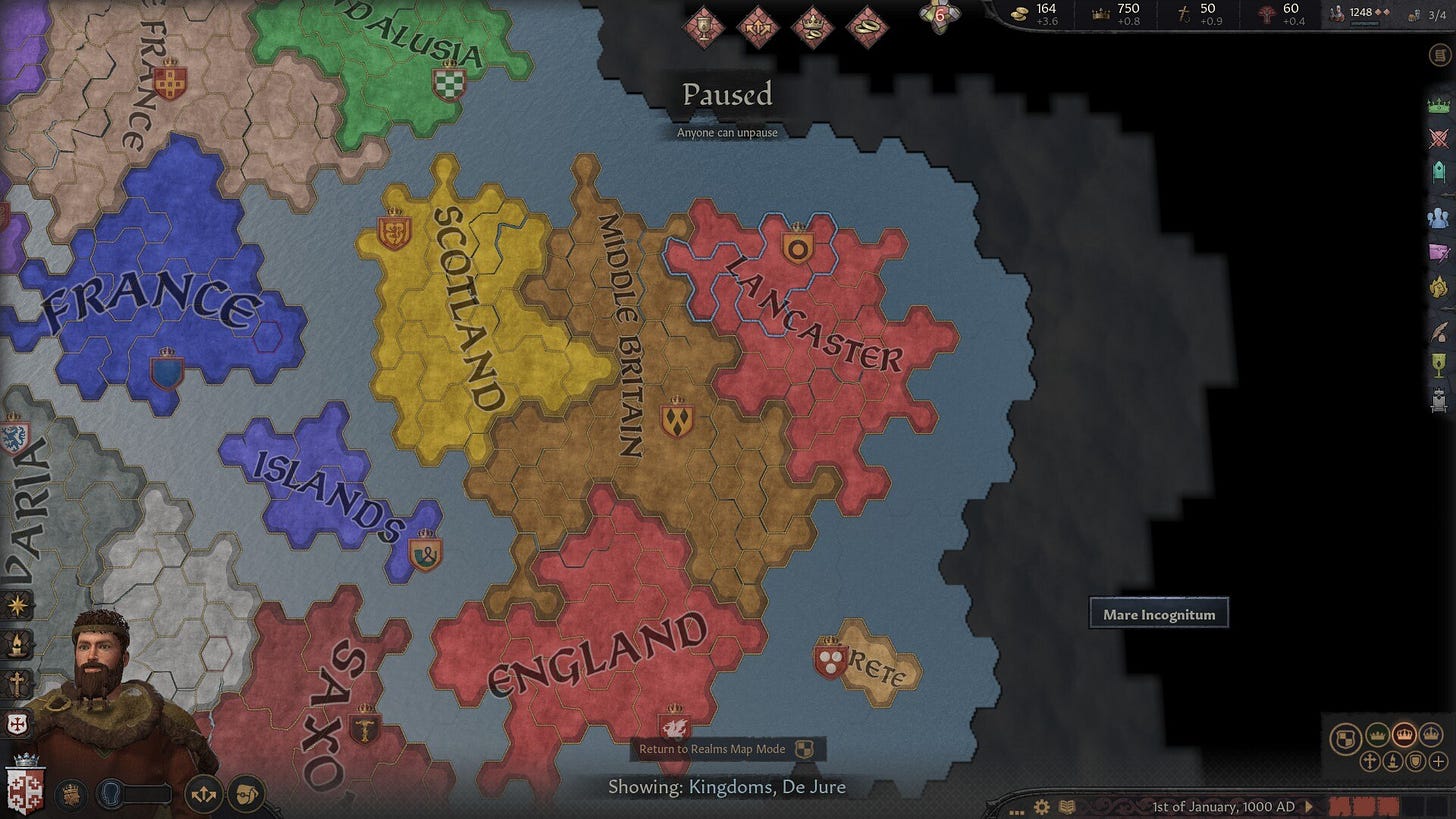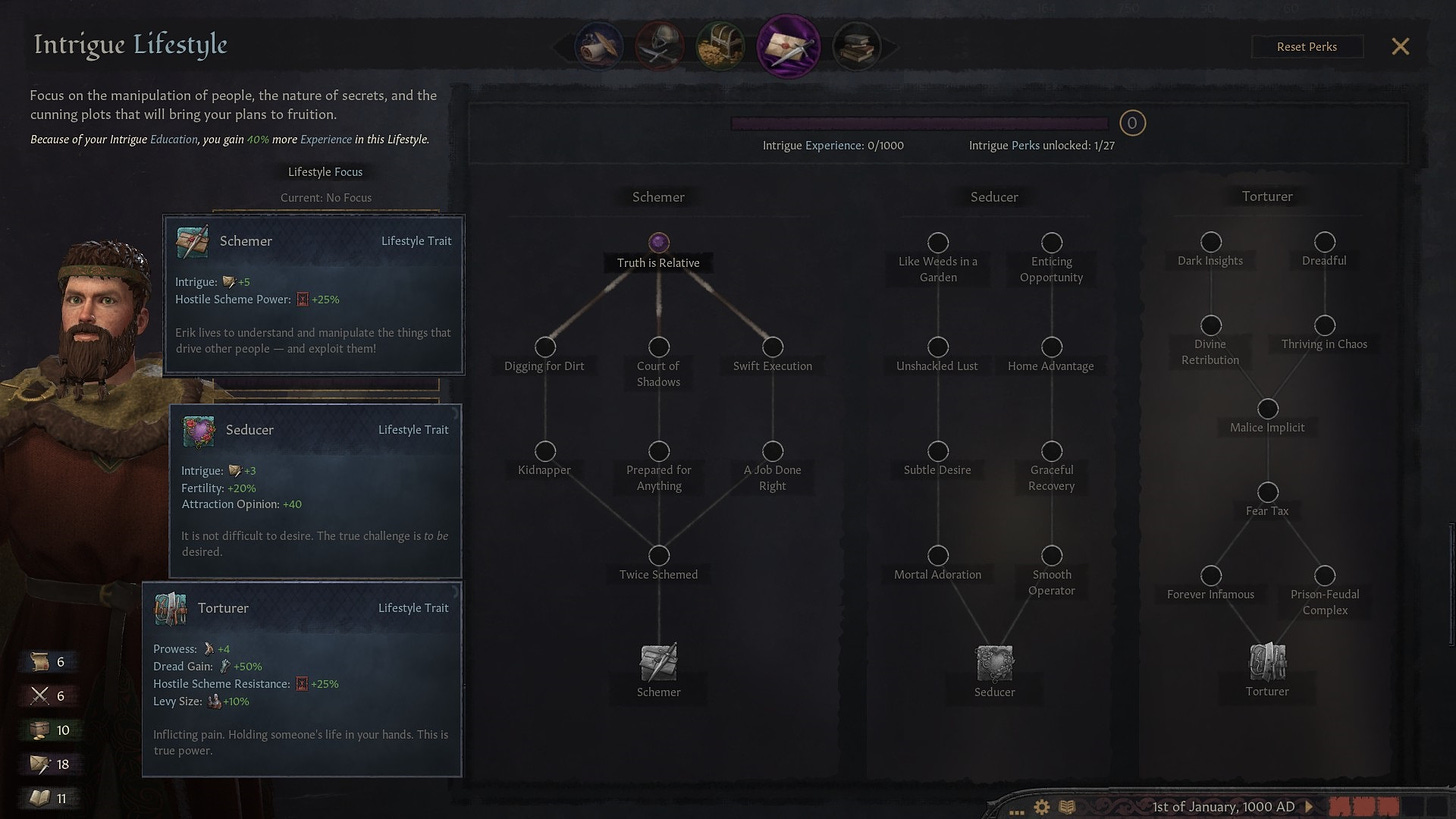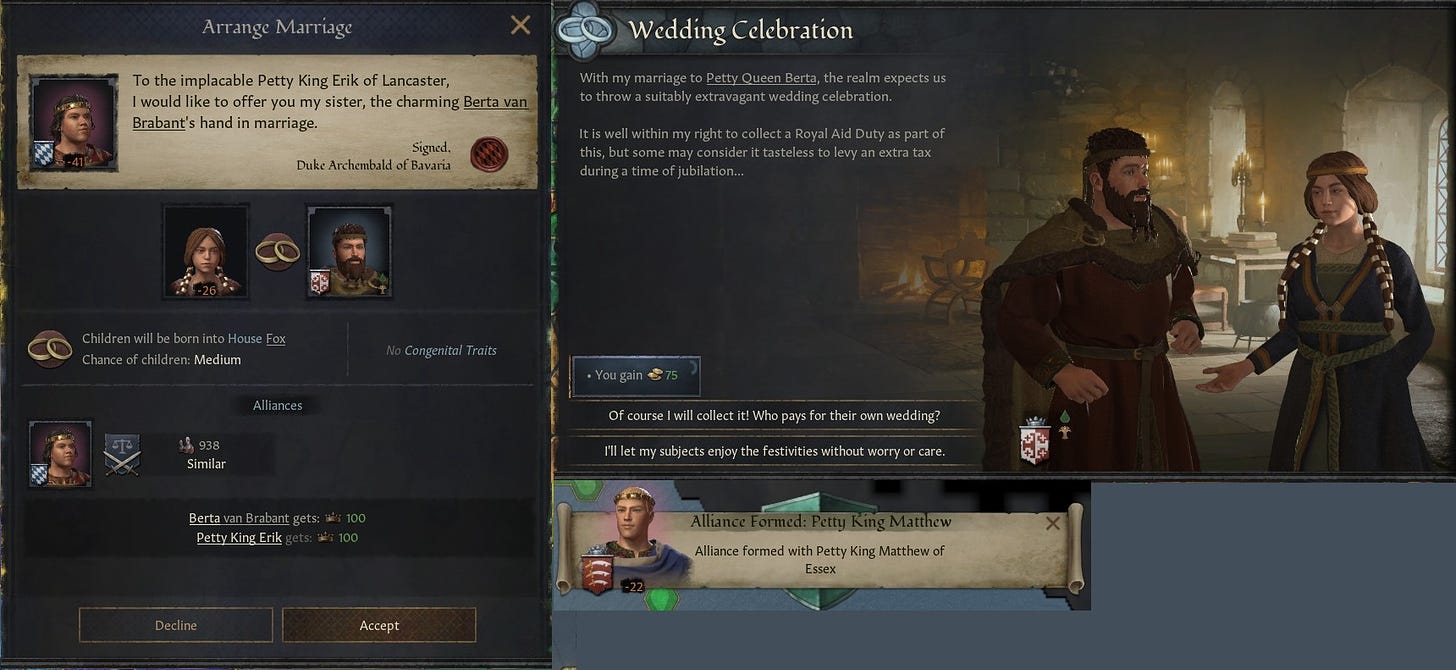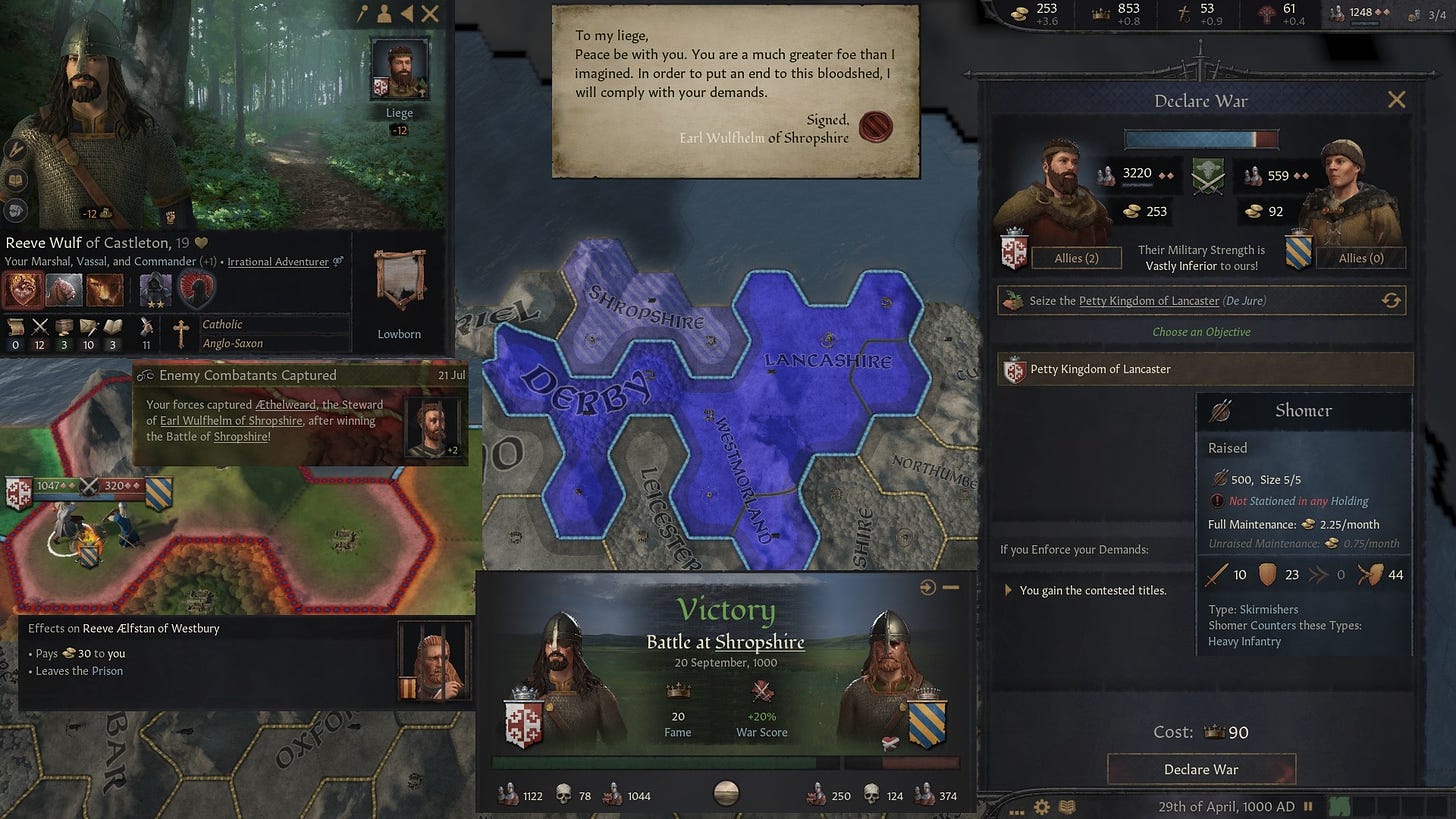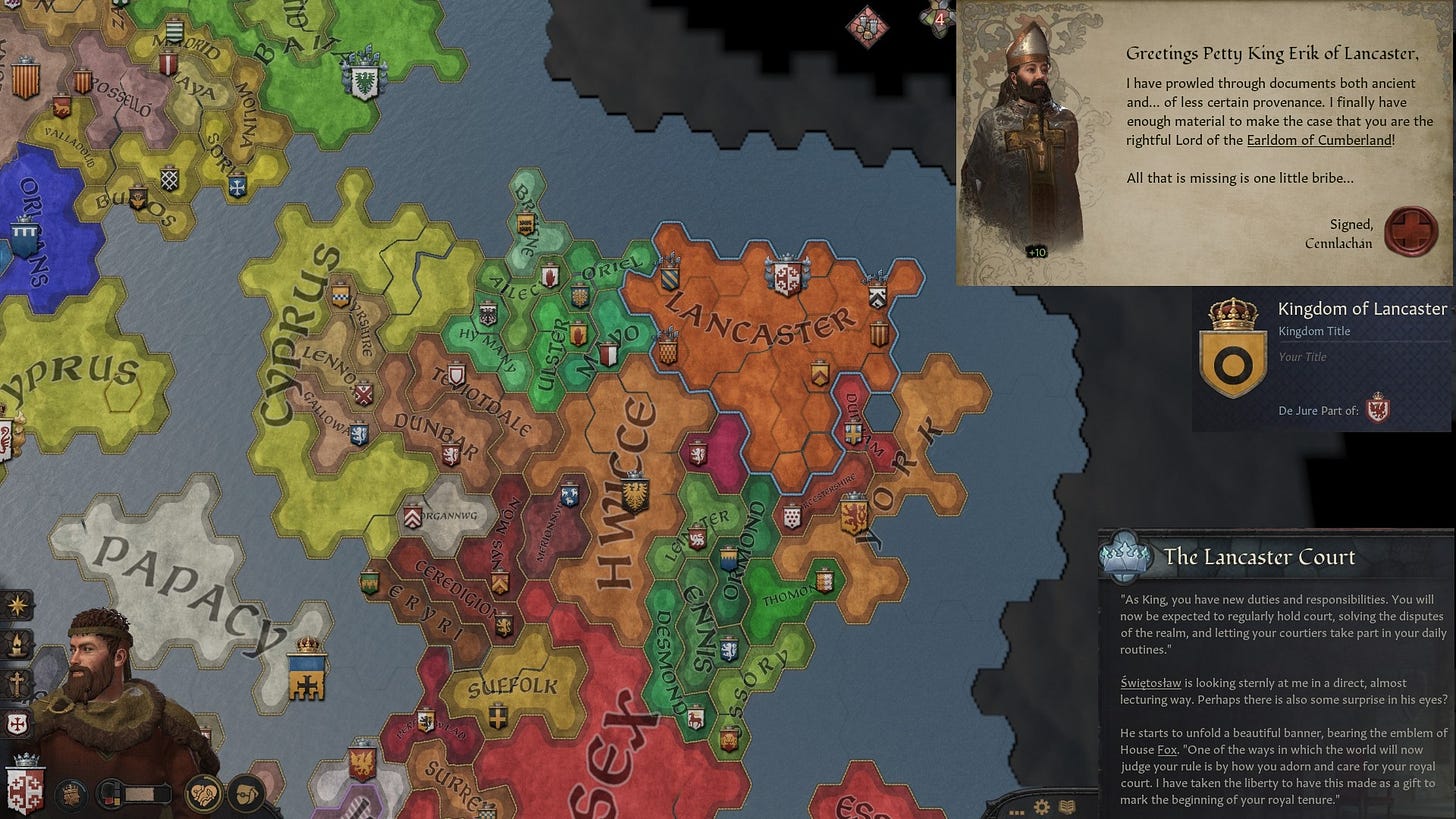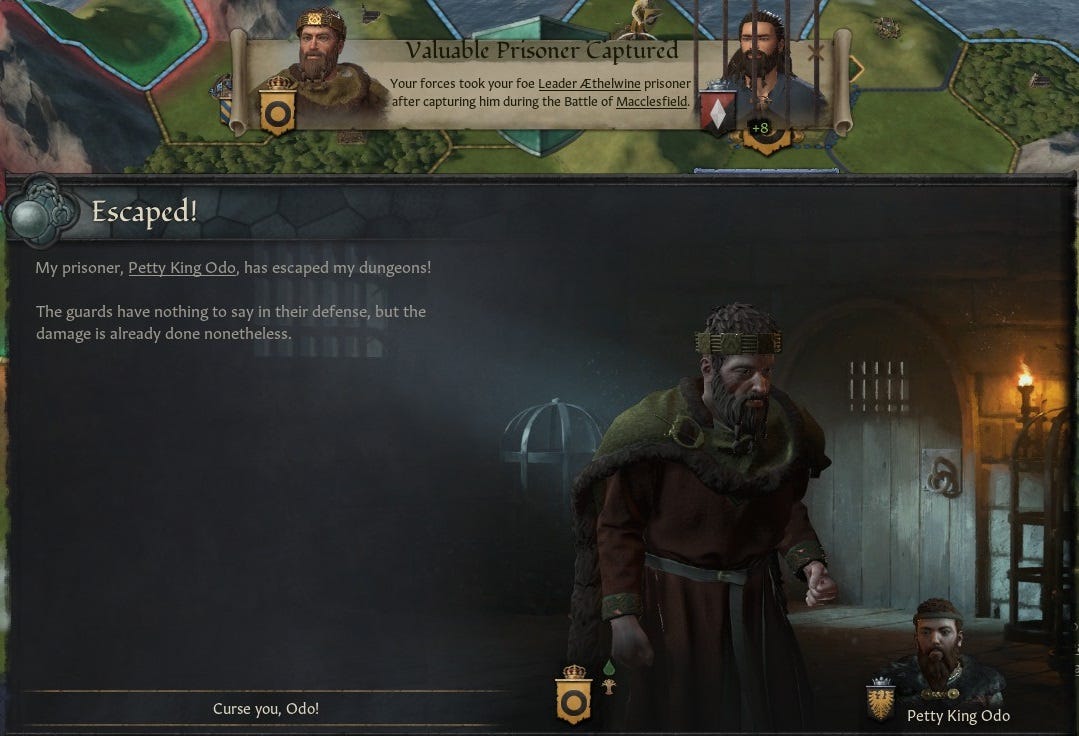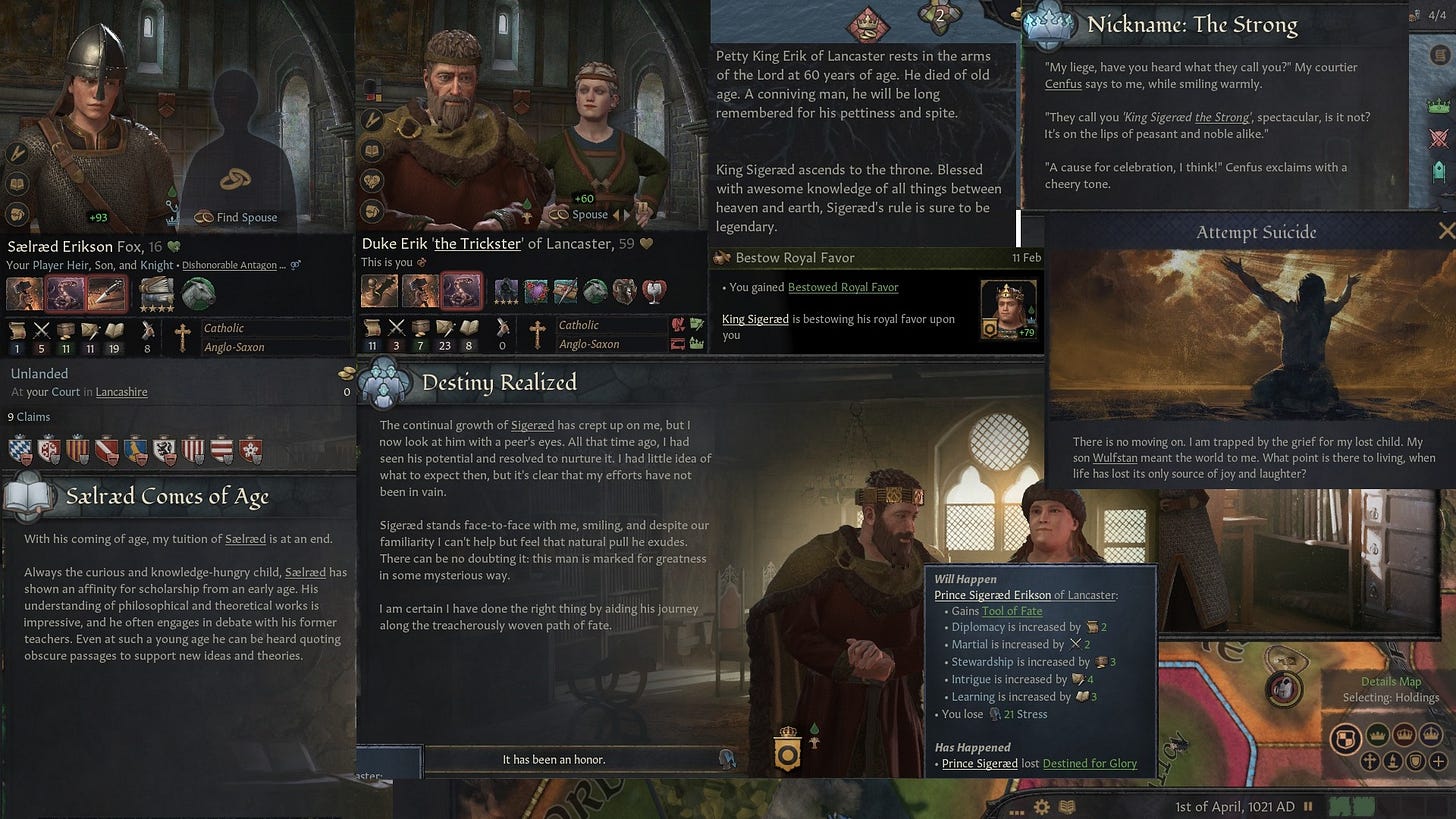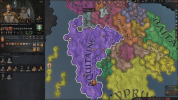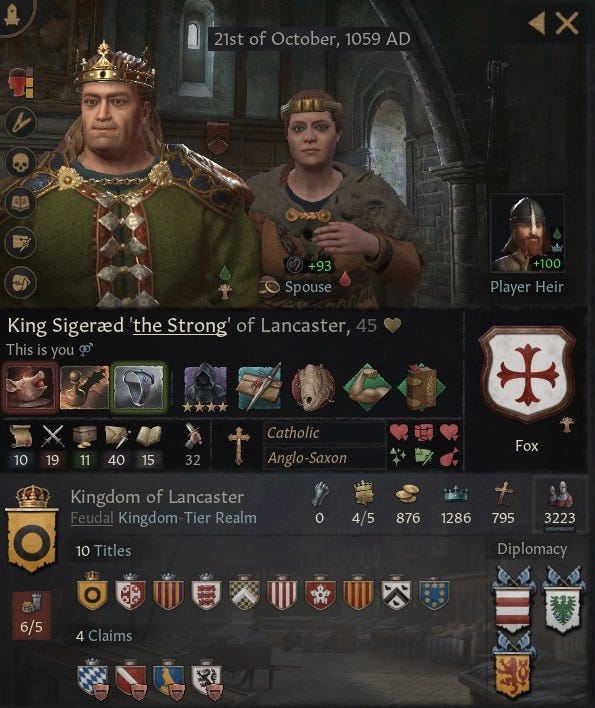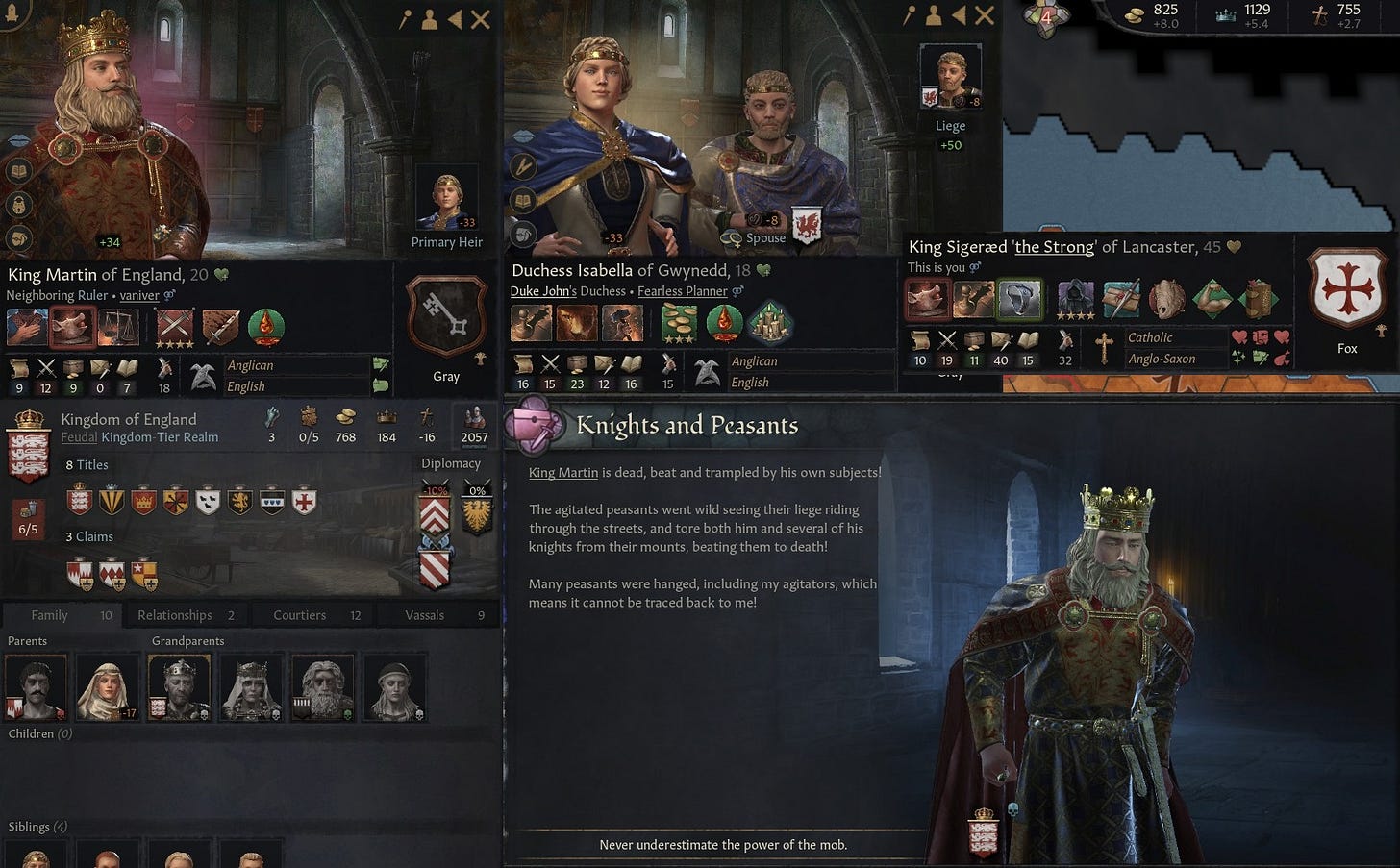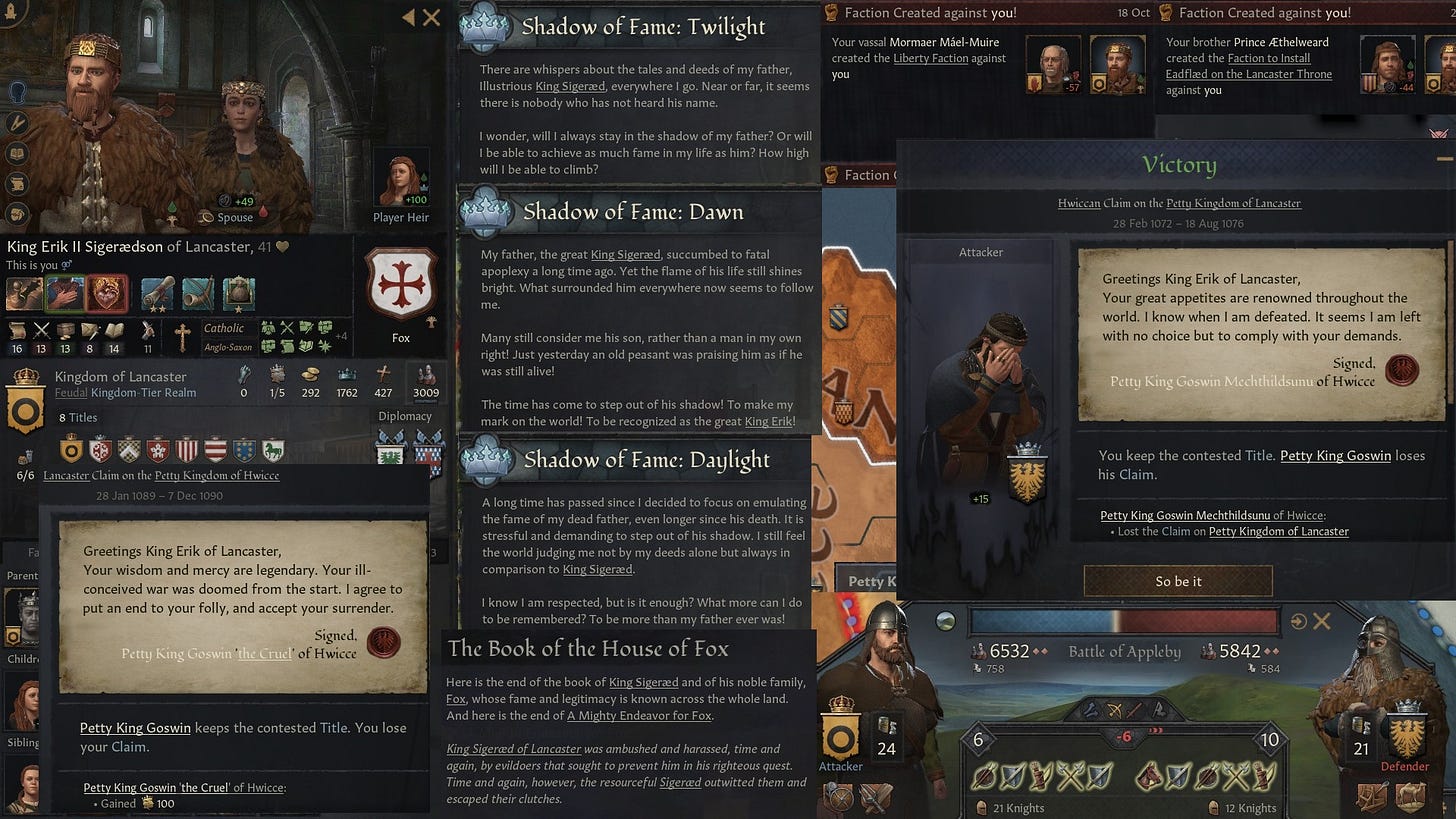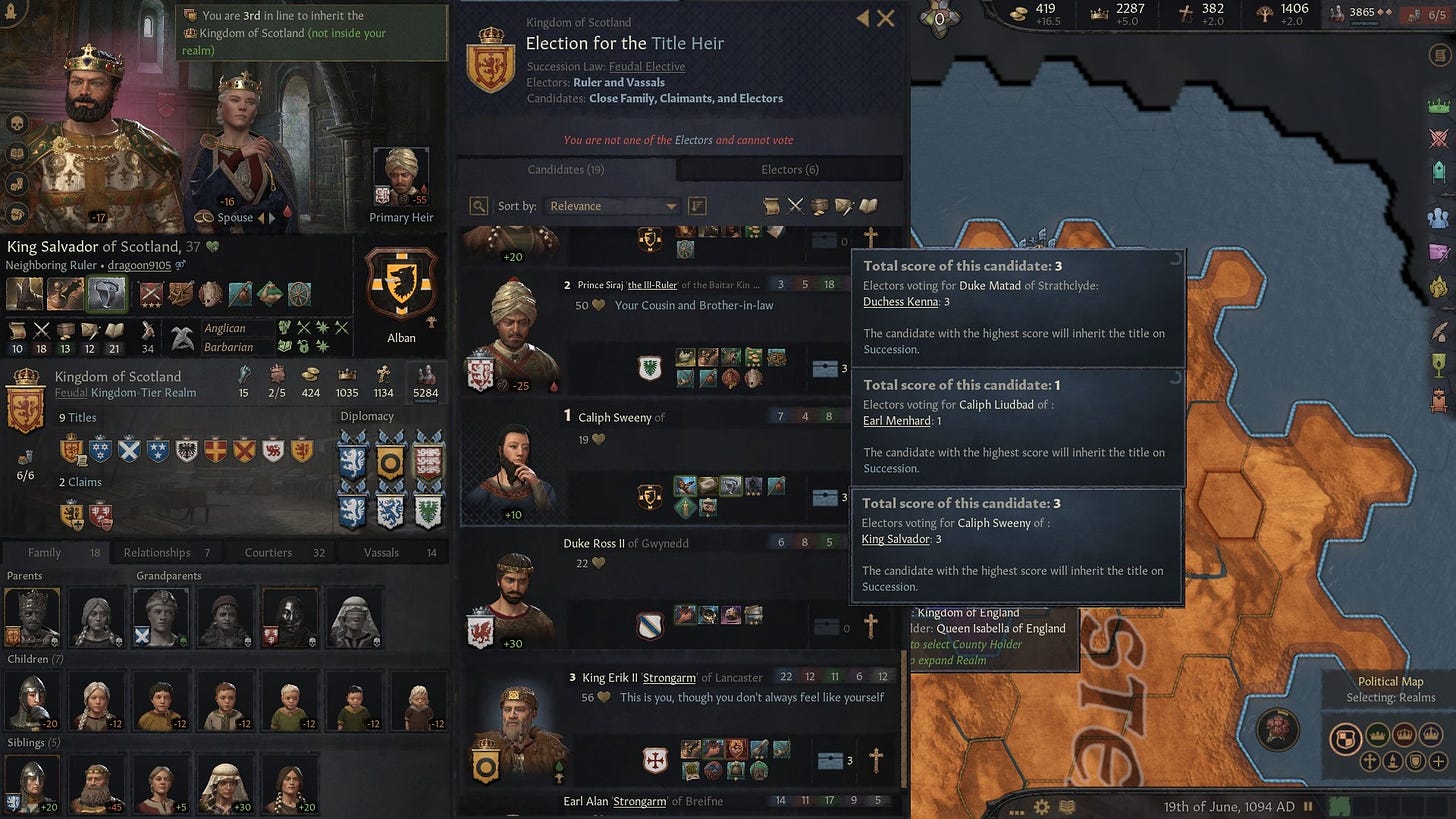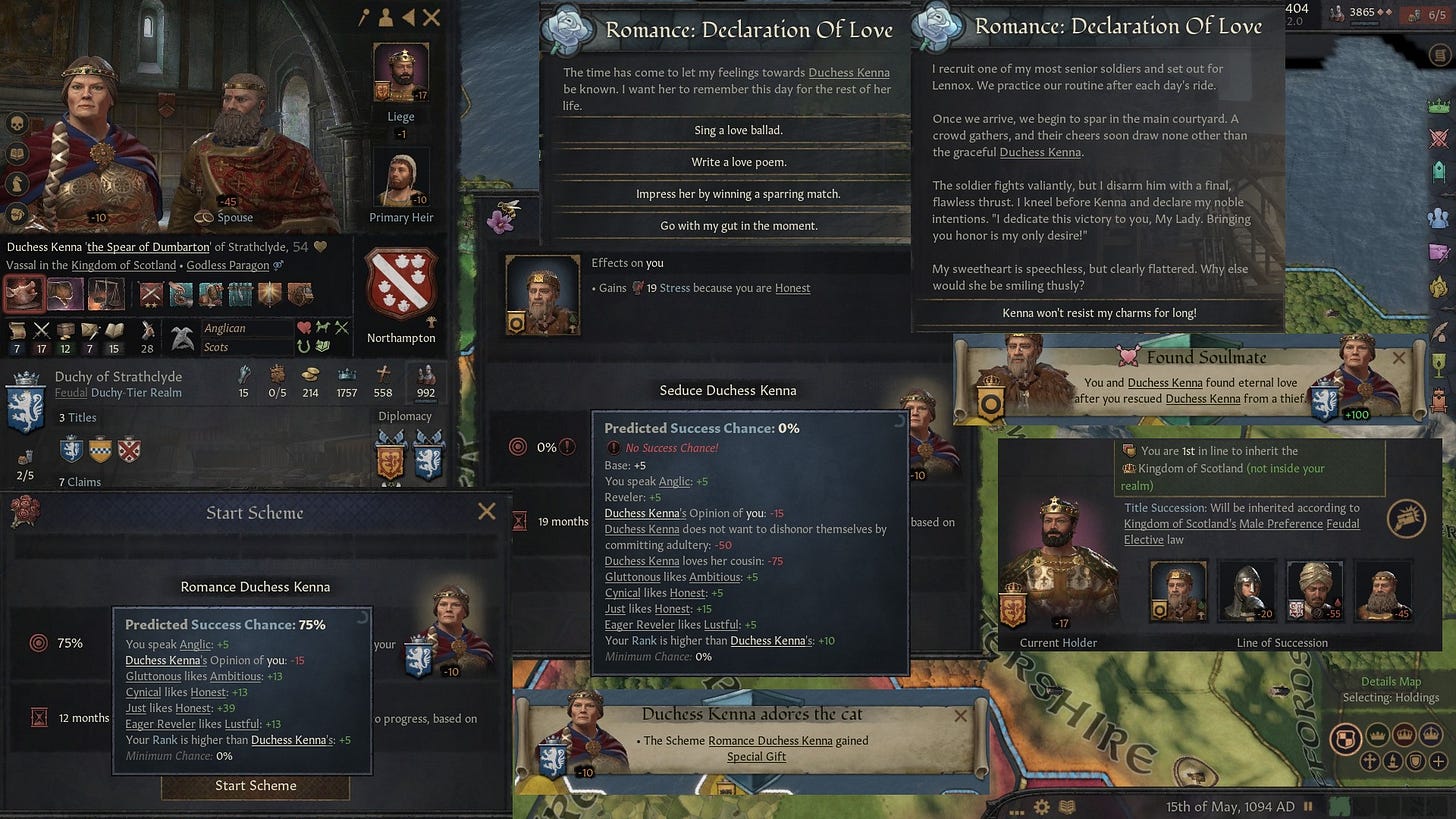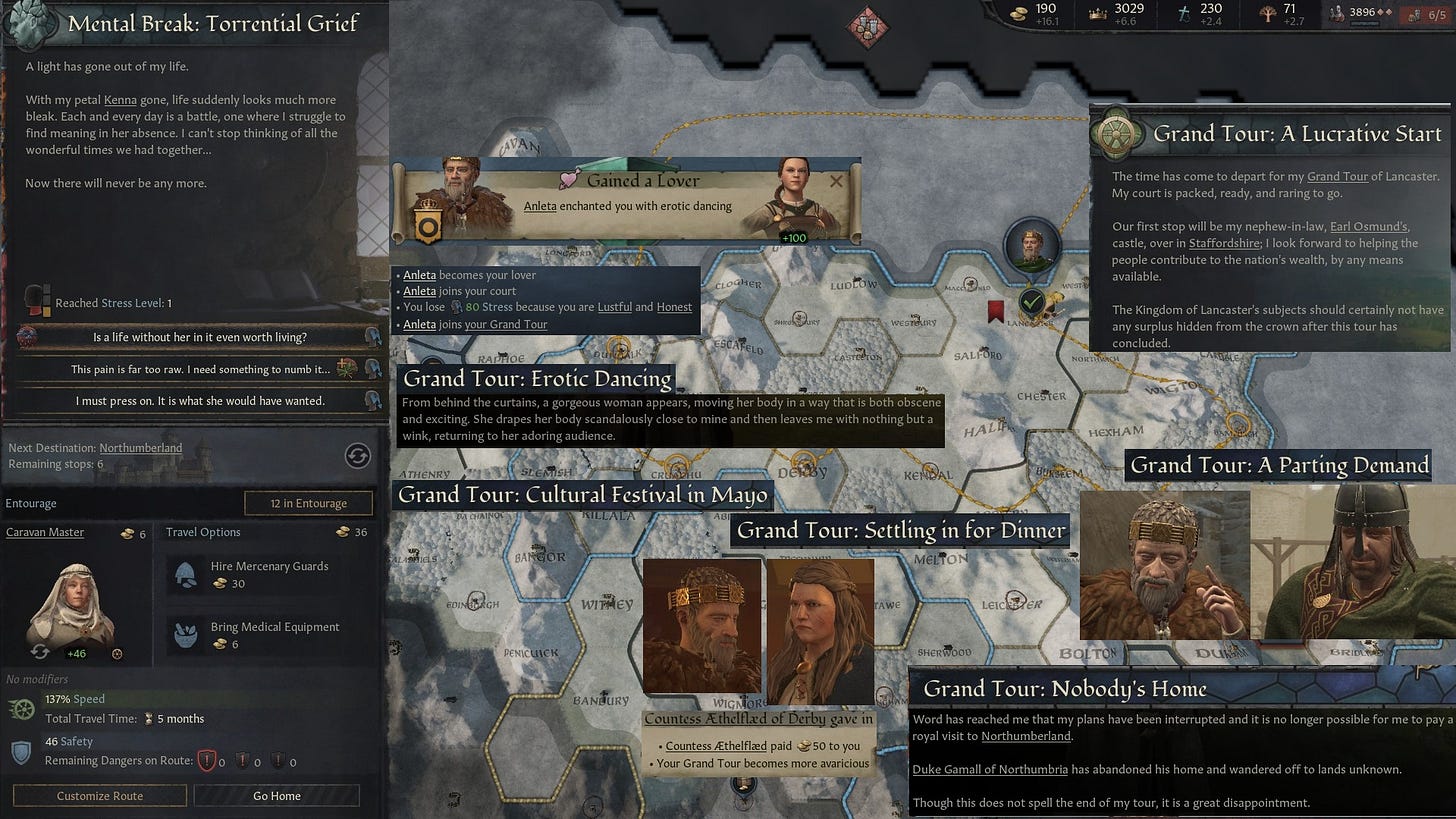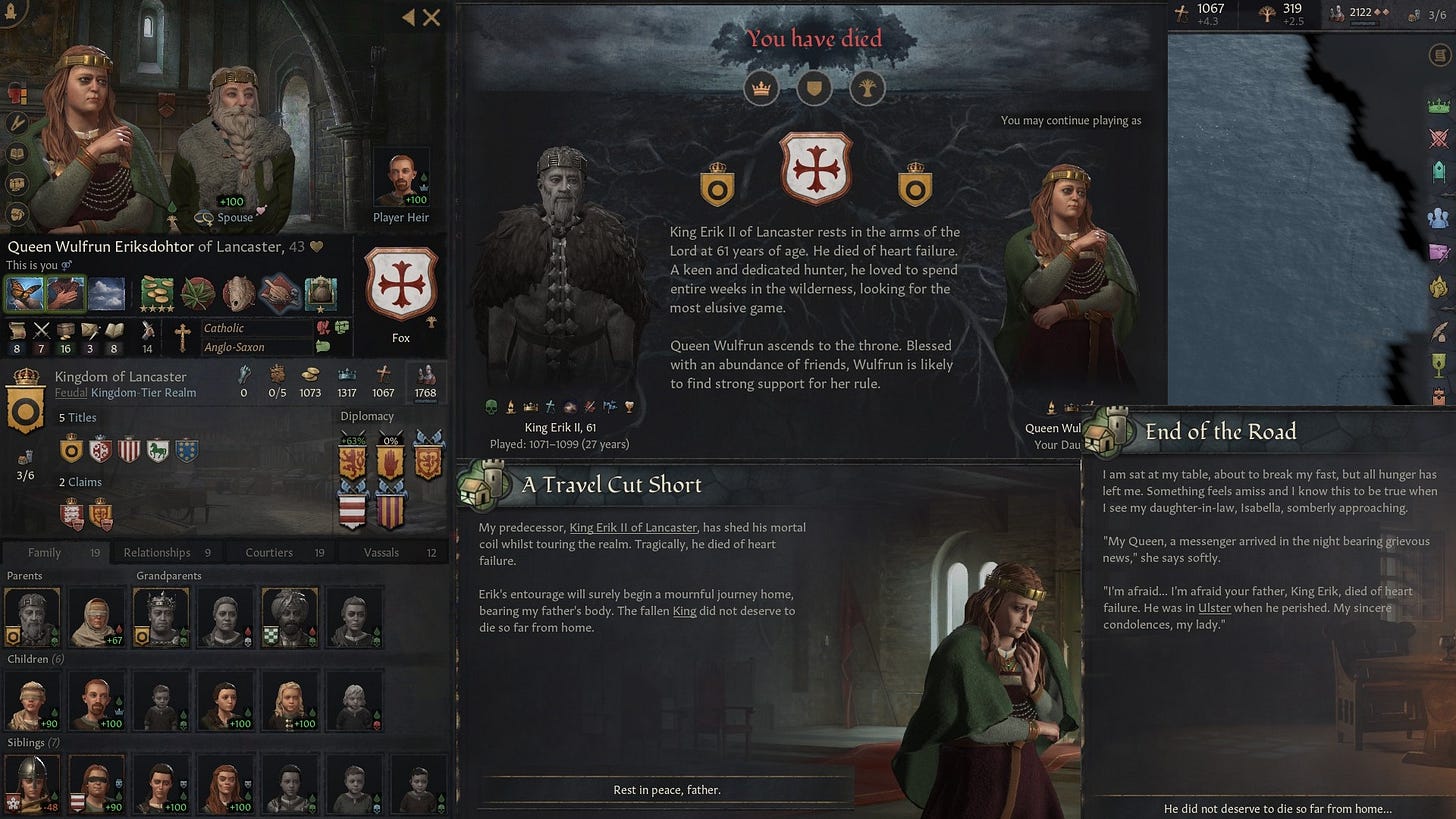The world of Cowl is much like ours; verdant fields, cerulean oceans, brilliant sunlight. The first difference one would notice if transported from Earth is the moon, a tumultuous red-orange circle that looms massive in the sky, for Cowl is the moon of a gas giant instead of a planet in its own right. But at this stage of their history, that sort of distinction would be lost upon the learned scholars of Cowl.
While smaller than Earth, its inhabitants are just as quarrelsome, and their history is suspiciously similar to ours; up to a point. Rome, at the center of the Mediterranean, conquered the known world, ushered in an era of peace and prosperity, and then collapsed, due to an unfortunate combination of institutional decay, poor harvests, and widespread plague. During the dark ages, few polities survived, and it was the rare warlord who extended their authority beyond how far a man could ride in a day. The Pope went from being supreme spiritual authority to little more than the bishop of Rome.
But in 1000 AD, things began to change. A series of young warlords, ambitions and diligent, rose in the old capitals of the minor provinces of Christendom. It would not be apparent to the people of the time that the Dark Ages were coming to an end, but in retrospect, the Creating of Order began then.
This is the newest installment of the Great Game; you might have read previous AARs from this group in To Pierce The Heavens, or To Build in Chaos, or The Widow's Party, or We Must Feed Our Sea, or God of Our Fathers, or many others not linked here (we've been at this for a while!). Like To Build In Chaos, we're using a procedurally created map, and here's the code used to make the map. It's currently not turnkey--I ended up doing a bunch of work by hand as well, and we have pretty extensive customization beyond what the generator does, but it will be in a state where people besides me can successfully use it soon (I hope). We'll be converting to EU4, and then V3, and then finally finishing in HOI4.
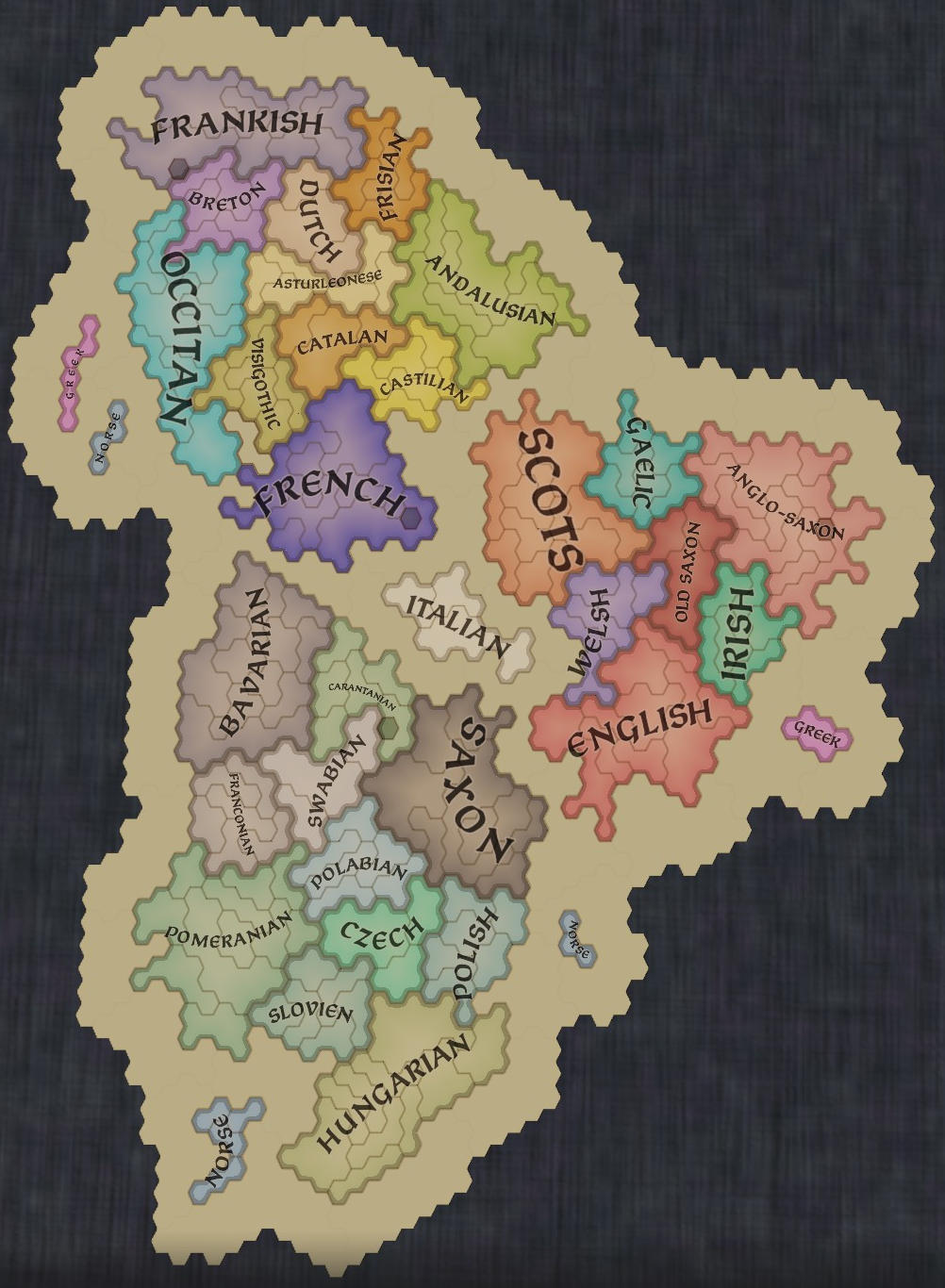
This world is designed for multiplayer first; everyone is starting in basically equal kingdoms, with basically equal interstitial provinces to fight over. We've customized starting cultures and faiths--I was expecting lots of people to pick Catholic, and instead there's a huge mixture of heresies.
The northern continent, Francia, takes inspiration from historical France, stretching south into Spain as well, rotated from our world's history. Paris is now a Mediterranean port and balmy Provence is the most equatorial of the starting kingdoms. South of it is Germania, taking inspiration from central Europe, with wintry Hungary stretching deep into the polar regions. The eastern continent, Britannia, is basically all of historical Britain, remixed into one triangular blob. The central Italian island is little more than the surroundings of Rome. [This is roughly equivalent to limiting a vanilla game to three empires; there are 290 counties in this world.] Crete and Cyprus--Mediterranean islands in our world--are instead coastal islands, and Iceland, once again living up to its name as a wintry place, is close instead of distant.
While smaller than Earth, its inhabitants are just as quarrelsome, and their history is suspiciously similar to ours; up to a point. Rome, at the center of the Mediterranean, conquered the known world, ushered in an era of peace and prosperity, and then collapsed, due to an unfortunate combination of institutional decay, poor harvests, and widespread plague. During the dark ages, few polities survived, and it was the rare warlord who extended their authority beyond how far a man could ride in a day. The Pope went from being supreme spiritual authority to little more than the bishop of Rome.
But in 1000 AD, things began to change. A series of young warlords, ambitions and diligent, rose in the old capitals of the minor provinces of Christendom. It would not be apparent to the people of the time that the Dark Ages were coming to an end, but in retrospect, the Creating of Order began then.
This is the newest installment of the Great Game; you might have read previous AARs from this group in To Pierce The Heavens, or To Build in Chaos, or The Widow's Party, or We Must Feed Our Sea, or God of Our Fathers, or many others not linked here (we've been at this for a while!). Like To Build In Chaos, we're using a procedurally created map, and here's the code used to make the map. It's currently not turnkey--I ended up doing a bunch of work by hand as well, and we have pretty extensive customization beyond what the generator does, but it will be in a state where people besides me can successfully use it soon (I hope). We'll be converting to EU4, and then V3, and then finally finishing in HOI4.

The initial culture map of Christendom
This world is designed for multiplayer first; everyone is starting in basically equal kingdoms, with basically equal interstitial provinces to fight over. We've customized starting cultures and faiths--I was expecting lots of people to pick Catholic, and instead there's a huge mixture of heresies.
The northern continent, Francia, takes inspiration from historical France, stretching south into Spain as well, rotated from our world's history. Paris is now a Mediterranean port and balmy Provence is the most equatorial of the starting kingdoms. South of it is Germania, taking inspiration from central Europe, with wintry Hungary stretching deep into the polar regions. The eastern continent, Britannia, is basically all of historical Britain, remixed into one triangular blob. The central Italian island is little more than the surroundings of Rome. [This is roughly equivalent to limiting a vanilla game to three empires; there are 290 counties in this world.] Crete and Cyprus--Mediterranean islands in our world--are instead coastal islands, and Iceland, once again living up to its name as a wintry place, is close instead of distant.
- 2
- 1
- 1






